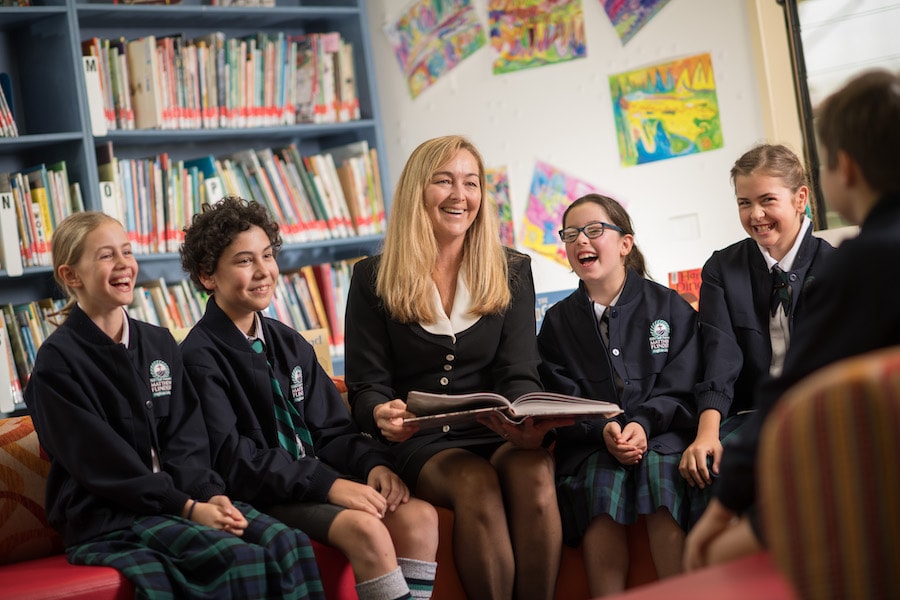I’m sure you remember your first childhood friends. The ones you were excited to see when you arrived at school, who made you laugh, shared common interests and enjoyed numerous play dates with you. These early friendships helped us to establish a bond and a sense of identity and belonging. Even now, as adults, our friends remain a hugely important part of our lives, from sharing problems, asking for advice, uncontrollable laughter and good times, sharing our life events and proudest moments, our friends help each of us define who we are.
For children, making friends is a vital part of growing up and an essential part of their social and emotional development. Friendships contribute significantly to the development of social skills, such as being sensitive to another’s viewpoints, learning the rules of conversation, and age-appropriate behaviours. Friends also have a powerful influence on a child’s positive and negative school performance and may also help to encourage or discourage inappropriate behaviours. Attributes such as social competence, altruism, self-esteem and self-confidence have all been found to be correlated to friendships. Studies have found that friendships enable children to learn more about themselves and develop their identity. As children mature, friends are able to help reduce stress and navigate challenging developmental experiences. (Paul Schwartz PhD., 2019)
The development and maintenance of friendships in childhood unfolds somewhat differently than seen with mature relationships, but it forms a pattern for creating friendships in later life. Many theorists view the development of friendships similarly to other areas of human development, as going through predictable, progressive stages:
Below the age of 7 friendships are based on physical (same age or gender) or geographical considerations (next-door neighbour) and are rather self-centred. A friend is a playmate who likes the same games; there is little or limited understanding of the other person’s perspective or feelings.
Between the ages of 7-9 the idea of reciprocity and awareness of the other child’s feelings begins. “Perspective taking” or the recognition of how another child might feel given our actions, begins during this stage. It should be noted that perspective taking is more dominant in girls than boys at this stage and throughout subsequent stages of development.
During the preadolescent (tween-ages 9-12) stage children have friendships based not only on mutual interest and geographical proximity, but also on a pattern of “give and take.” Trust, a benchmark of mature friendships, appears for the first time and children are less tolerant of children who repeatedly display behaviour that violates social norms. This stage is the template for adolescence, where peer-acceptance becomes paramount and social ostracism creates a multitude of problems.
Research shows that boys’ friendship groups are more inclusive and less changeable than friendships enjoyed by girls, particularly those in the eight to twelve age group. If you have a girl, be ready to support your daughter through the hurt of friendship breakdowns and remind them that new friendships are just around the corner. Many girls take a disagreement with a friend personally as they don’t have the emotional development to deal with conflict constructively. Help her reflect on her own place in a friendship breakdown, and encourage her to be open to restoring a relationship once emotions are in check. Offer some next steps and follow up when they get back from school.
Childhood friendships are full of ups and downs. It is not always easy for children to know how to manage friendships; learning how to keep and make new friends involves a number of skills young children need to learn and develop. For some children, these skills come very naturally, easily moving to and from friendship groups, sharing their experiences and opening up to new people. For others, the world of friendships can be much harder to navigate.
Here are a few suggestions to support your child in developing relationship skills that will cultivate deep, meaningful connections with others:
• Help your child to develop positive social skills from an early age. Help them to understand the importance of sharing, taking someone else’s feelings into account and listening to each other.
• Model the importance of staying connected. Demonstrate good friendship skills to your child and show them how friendships work by letting them see how you relate with your friends.
• Encourage the friendships that are important to your child. Scheduling time for them to see important friends outside of school, even if it’s only once in a while, helps them stay connected.
• Respect your child’s personality. Some children may have a lot of friends, and others may not need many friends to feel happy. It is important to celebrate and support your child’s personality and needs.
• Help your child find other children with similar interests through their participation in team sports, instrumental ensembles and bands, dancing groups, theatre groups, technology clubs – children choose friends based on similar and shared hobbies.
• Offer icebreakers as ways to engage with others for older children who may be feeling shy or anxious and role-play what they may say to someone.
Having friends is extremely important to and for children. There is no one-size-fits-all formula for friendship as people thrive socially in different ways. As parents it can be worrying and overwhelming at times to know how to successfully navigate the social challenges that our children may experience. There is no one way that works for all children. The only given is that throughout our children’s early lives they will require our time, love, support and guidance in developing and maintaining their friendships.
Ingrid Clarke | Head of Senior Primary School

